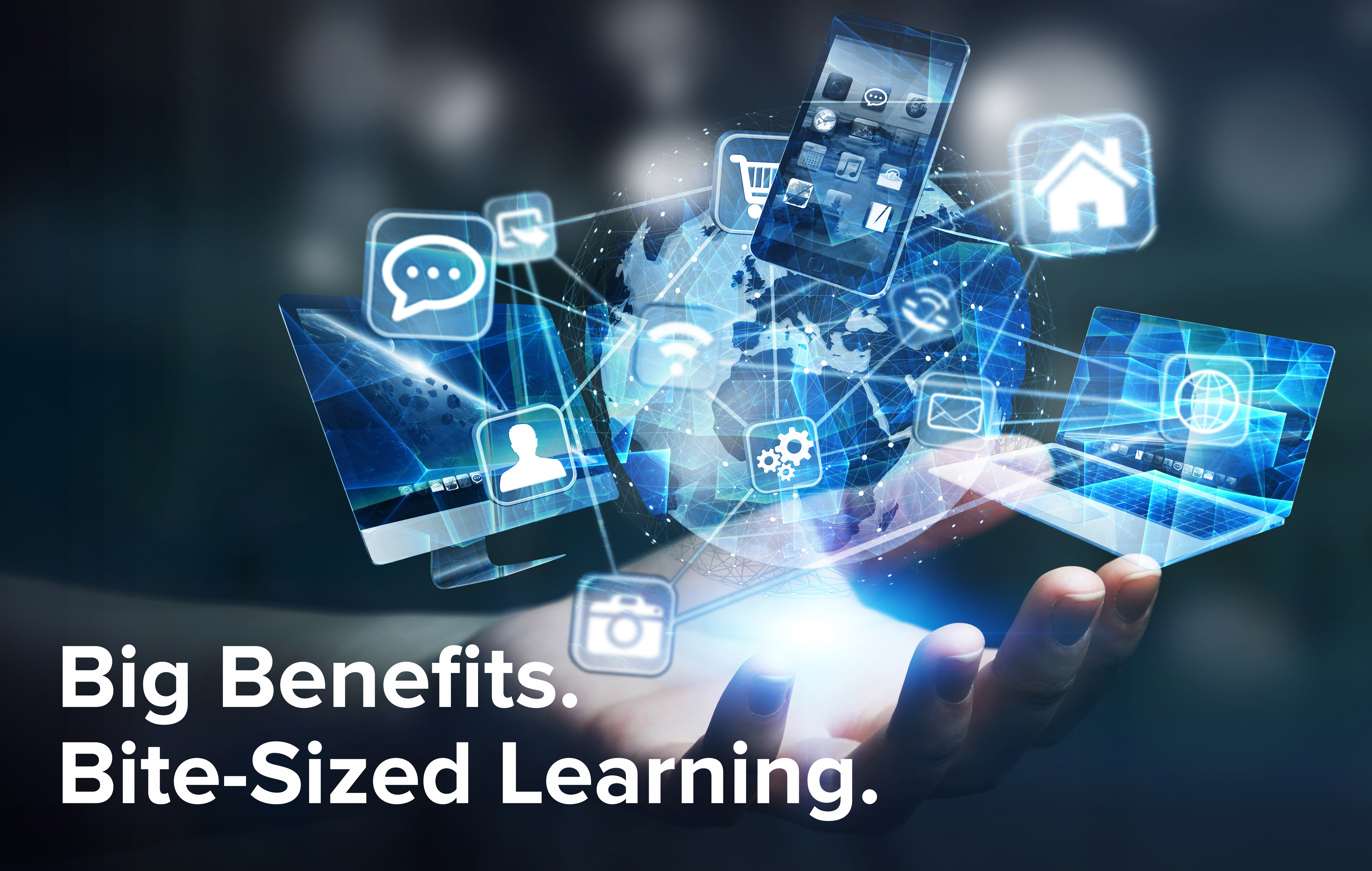
Although the concept of nano learning is relatively new, the underlying premise is something that educators have adhered to naturally in the classroom for years. Teachers know that students learn better when small amounts of information are provided on a repetitive basis to instill knowledge. Daily reading, drills of math facts, and frequent pop quizzes have been part of education for decades.
Today, however, our device- and social-media driven world brings the concept of nano learning into a whole new light, where it has the potential to facilitate continuous learning of nearly an unlimited number of subjects.
What is nano learning?
Nano learning, also known as micro learning or bite-sized learning, is a revolutionary approach that offers knowledge in small, easily digestible chunks.
Nano learning breaks down complex topics into short, focused modules that can be consumed in a matter of minutes. These modules often include videos, quizzes, interactive exercises, and other multimedia elements to enhance learning and retention. The beauty of nano learning lies in its flexibility and accessibility. Students can access content anytime, anywhere, using smartphones, tablets, or computers.
Local avenues for specialty programs can often be found through nearby universities, libraries, school systems, or private organizations.
Why is nano learning effective?
One key factor in nano learning’s effectiveness is its ability to align with the brain's natural learning processes. Research has shown that shorter, spaced-out learning sessions lead to better retention compared to longer, intensive study sessions. By delivering information in small doses, nano learning optimizes the brain's ability to absorb and retain knowledge.
Moreover, nano learning caters to the modern student’s preferences and habits. In today's digital age, attention spans are shorter, and multitasking is the norm. Traditional forms of education, with lengthy lectures and dense textbooks, often fail to capture and sustain students’ interest. Nano learning, on the other hand, offers bite-sized content.
What are the advantages of nano learning?
One major advantage of nano learning is its personalized approach. Many nano learning platforms leverage algorithms and data analytics to deliver customized learning experiences tailored to students’ needs and preferences.
Furthermore, nano learning promotes a culture that educators’ love: one of continuous learning. Instead of viewing education as a one-time event, nano learning encourages students to incorporate learning into their daily routines.
From a practical standpoint, nano learning is a cost- and time-efficient way for both students and even educators to acquire new knowledge and skills.
Are there any disadvantages to nano learning?
Despite its many advantages, nano learning is not without its challenges. Critics argue that the format may sacrifice depth for brevity, leading to superficial understanding of complex topics.
In addition, the micro-bites of information usually mean that nano learning is self-contained and taken out of the larger context, which can lead to an inaccurate understanding of the bigger picture.
All that said, teachers can successfully use nano learning as one component in their overall plan. As long as students are able to dive deeper and study the greater context in other aspects of their education, nano learning can be a powerful adjunct to traditional tools and lessons.
What are some nano learning applications for educators?
Nano learning has grown in popularity throughout the greater education and training world, spanning from pre-school applications through corporate training programs. Here are some additional resources to explore.
• Resources for the classroom. Many organizations provide resources for incorporating nano learning into your classroom. Although there is a charge for some of these programs, many are offered at no charge.
• Classroom tips and ideas. Many K12 educators have embraced the nano learning philosophy and have found ways to incorporate it into regular classroom activities.
• Ongoing professional development. Finally, school districts that are interested in nano learning may want to consider using a platform to reate professional development opportunities for their teachers on an ongoing basis.
Conclusion
Nano learning represents a paradigm shift in education. By leveraging technology and cognitive science principles, nano learning offers a dynamic and accessible approach to learning that empowers individuals to unlock their full potential. As we embrace the era of nano learning, let us embrace the opportunity to learn, grow, and thrive in a world of endless possibilities.

